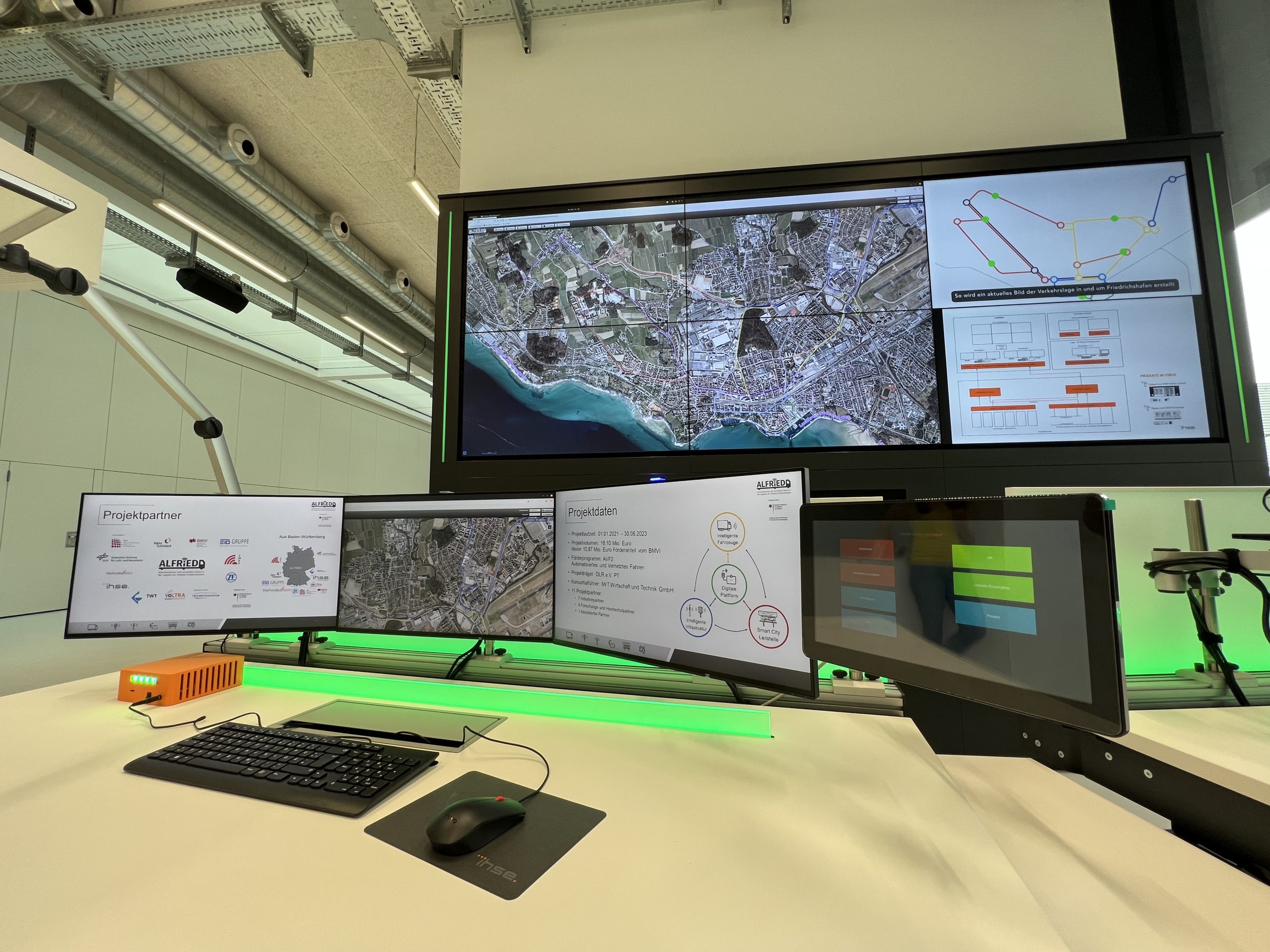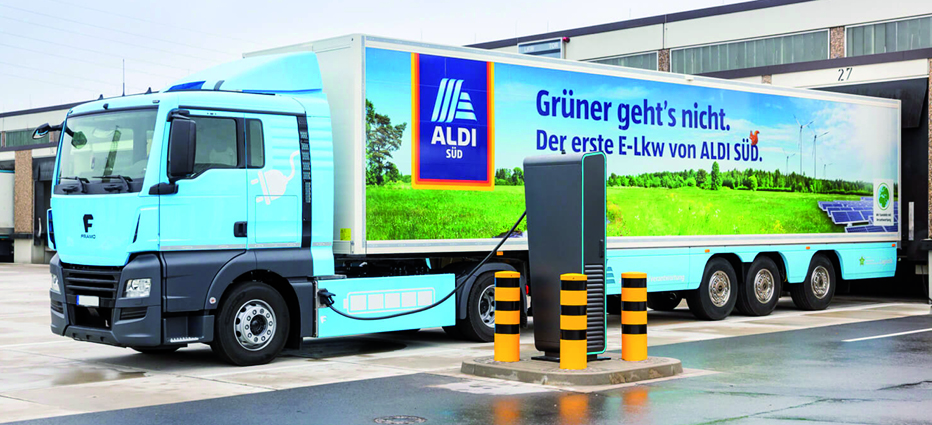 Bedienplatz in der Smart-City-Leistelle mit einem Tastatur- und Maus-Set zur Bedienung mehrerer Rechner und Systeme. Foto: IHSE
Bedienplatz in der Smart-City-Leistelle mit einem Tastatur- und Maus-Set zur Bedienung mehrerer Rechner und Systeme. Foto: IHSE
The ALFRIED research and development project (automated and networked driving in logistics at the Friedrichshafen test site) is developing intelligent technology for controlling and monitoring inner-city traffic. Both passengers and network operators should benefit from unhindered, safe, low-noise and low-emission traffic. The project, which is funded by the Federal Ministry for Digital and Transport Affairs, combines state-of-the-art technologies such as artificial intelligence, data analytics, passenger management, network monitoring and automated routing.
Of crucial importance for the autonomous driving of the future are central control centers that collect and validate all traffic data and provide the relevant information to road users or their autonomous systems in real time and make appropriate recommendations for action.
KVM in the Smart City control center
The Smart City control center set up for this purpose is an open demonstration center that simulates real operation in such a way that various concepts can be developed and tested. An IHSE KVM system is used to control and access several computers. KVM stands for “Keyboard, Video, Mouse”. KVM technology makes it possible to operate several computers or servers from a central console in real time.
In addition to central monitoring, the KVM system enables a flexible working environment in which operators can switch seamlessly between different computers and applications and use them together without noticing the spatial separation in the work processes.
In order to make optimal recommendations for route planning, the KVM system processes both publicly accessible information and sensitive data with special security requirements.

Protection against cyber attacks
Especially in times of cyber attacks, protection against data theft is of central importance for smart city control centers. An attack could have dramatic consequences for the entire infrastructure: Traffic chaos, outages or restrictions to emergency services. This pioneering control center must therefore meet future security requirements that are not yet taken into account by current commercial control center concepts.
To protect sensitive data and systems in the control center, IHSE equipped the transmission system with multi-level security functions. The KVM setup prevents unauthorized access by housing the sensitive devices and computers in a secure server room. The connection to the workstations runs via proprietary encrypted and tap-proof data transmission in accordance with military standards (NIAP PP4.0 and EAL4+), which also meet the KRITIS criteria for critical infrastructure. Operators must also authenticate themselves at their consoles and are subject to access control that precisely defines which users have access to which areas.
By only transmitting necessary signals, hardware access can be further restricted: restricting USB connections to keyboard and mouse commands prevents data theft via USB sticks or the introduction of malware, for example. The central matrix switch (the actual control center) is physically separated from the IP network, which excludes potential hacker attacks via IP from the outset. In the unlikely event of a system failure, the redundancy function used also allows seamless switching to backup computers and systems. www.ihse.com
You can read this and other articles on the subject of electromobility & autonomous driving in the current eMove360° magazine in german language. Download for free or order the print version in the store.